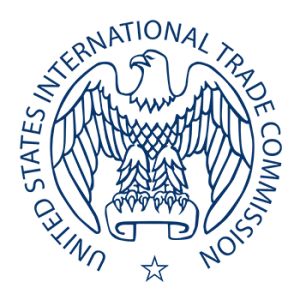This is a review of initial Supreme Court and Federal Appeals Courts oral arguments and other matters in October 2022.
Acquiring Distressed Commercial Mortgage Loans: A Diligence Checklist
Real Estate & Construction News Round-Up (11/02/22) – Flexible Workspaces, Sustainable Infrastructure, & Construction Tech
This week’s round-up dives into digital transformation in the construction industry, renewed interest in flexible workspaces, and how the infrastructure sector can become more resilient and sustainable, both economically and environmentally.
Real Estate & Construction News Round-Up (10/26/22) – Proptech, Construction Starts, and the Solar Market
This week’s round-up features the decline in construction starts, proptech and its potential impact on the affordable housing sector, the residential home solar market, and more.
Real Estate & Construction News Round-Up (10/19/22) – Green Financing, Critical Infrastructure Protection, and IIJA Equity
This week’s round-up features green financing of hotels, efforts of the European Union to protect critical infrastructure, initiatives surrounding the IIJA to advance equity for historically disadvantaged businesses, and more.
The Case for Mixed-Use Retail Centers and Their Continued Investment Potential
Early pandemic fears that brick-and-mortar retail would not live to see the next decade look to be largely unfounded. Shopping centers remain a sound investment for private firms and large institutional investors alike, as evidenced by new numbers suggesting that retail acquisition surged to nearly $82 billion last year, a figure up 24% from the pre-pandemic levels of 2019. This revitalization has continued into this year, with first-quarter transaction volume hitting $25 billion, reflecting an 82% increase from the same period in 2021. In the second quarter of this year, more than 900 shopping centers sold nationwide—a total of $16.6 billion alone for in-person retail. Retail vacancies are the lowest they’ve been in at least 15 years, and current rent averages are up 16% than the rental rates of five years ago.
Real Estate & Construction News Round-Up (10/12/22) – the IIJA, Cybersecurity, and the Housing Market
This week’s round-up features how industries tangentially related to the housing market could be affected by its downturn, how the Biden Administration’s plans to invest IIJA funds, cybersecurity considerations for commercial property owners, and more.
Real Estate & Construction News Round-Up (10/05/22) – Hurricane Ian, the Inflation Reduction Act, and European Real Estate
This week’s round-up features Hurricane Ian’s effect on the construction labor pool, the Inflation Reduction Act’s projected impact on the real estate and construction industry, Europe’s real estate market, and more.
Safeguarding the U.S. Construction Industry from Unfair Competition Abroad
 In April 2015, the U.S. International Trade Commission (ITC) issued an exclusion order prohibiting the importation of certain foreign-made crawler cranes into the United States for a period of at least 10 years. That order was the result of a 20-month investigation by the ITC, initiated by a Wisconsin-based crane manufacturer based on allegations of patent infringement and trade secret misappropriation by a China-based company. Defined by powerful injunctive remedies, unique rules, and a lightning-fast docket, the ITC can help protect American industry from unfair acts in the importation of articles into the United States. This post explores the traits that make the ITC an attractive venue for potential complainants.
In April 2015, the U.S. International Trade Commission (ITC) issued an exclusion order prohibiting the importation of certain foreign-made crawler cranes into the United States for a period of at least 10 years. That order was the result of a 20-month investigation by the ITC, initiated by a Wisconsin-based crane manufacturer based on allegations of patent infringement and trade secret misappropriation by a China-based company. Defined by powerful injunctive remedies, unique rules, and a lightning-fast docket, the ITC can help protect American industry from unfair acts in the importation of articles into the United States. This post explores the traits that make the ITC an attractive venue for potential complainants.
Real Estate & Construction News Round-Up (09/28/22) – Virtual Property, ESG Reporting, and Economic Sanctions
This week’s round-up features virtual land marketplaces, proposed sanctions from the European Commission against Russia, ESG reporting and transparency in the real estate industry, and more.






